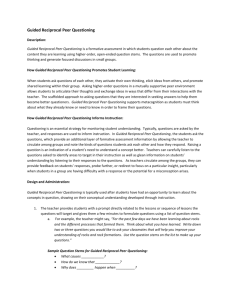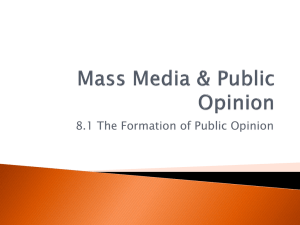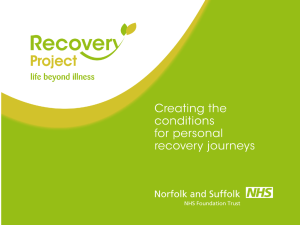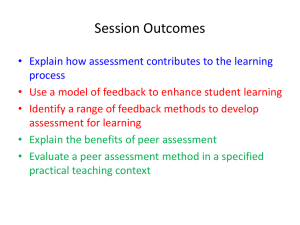Collaborative Learning for PLTL
advertisement
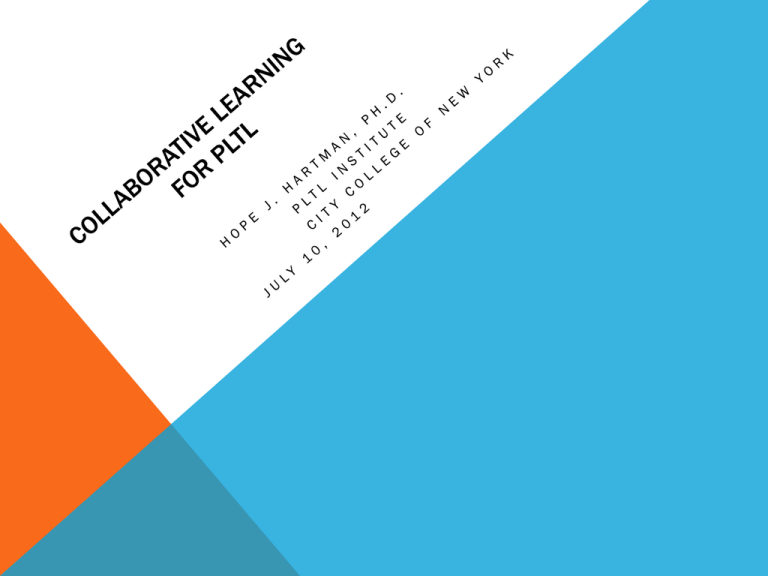
YOUR EXPERIENCES WITH COLLABORATIVE GROUPS Think-Pair-Share: Based on your own experiences, what do you see as potential advantages and disadvantages of students working in groups? OVERVIEW Types of Cooperative Group Work Research Findings Collaboration Criteria Group Processing Exit Slip TYPES OF COOPERATIVE GROUP WORK Pair Activities: -Think-Pair-Share (Lyman et.al.) - Pair-Problem Solving (Whimbey & Lochhead 1982) Group Activities -Learning Together (Johnson & Johnson) -Jigsaw (Aronson et.al.) -Guided Reciprocal Peer Questioning (King) RESEARCH FINDINGS: COOPERATIVE GROUPS (JOHNSON & JOHNSON) 1. Increased content mastery/higher levels of academic achievement 2. Development of higher-level thinking skills 3. Improved academic self-concept and self-esteem 4. Better interpersonal relations between culturally diverse learners 5. Enhanced social competence COLLABORATION CRITERIA -positive interdependence - mutual goals - helping each other --accountability -giving corrective vs. critical feedback -accepting feedback from peers GUIDED RECIPROCAL PEER QUESTIONING KING, A. (1993) FROM THE SAGE ON THE STAGE TO THE GUIDE ON THE SIDE. COLLEGE TEACHING. 41(1) 30-35 FIRST SECTION ADAPTED FROM THE CENTER FOR TEACHING AND LEARNING AT STANFORD UNIVERSITY. HTTP://WWW.STANFORD.EDU/DEPT/CTL/CGI-BIN/DOCS/TA/PDF/SMALL_GROUP_EX.PDF WHY: SOMETIMES STUDENTS FEEL SO CONFUSED BY NEW CONCEPTS THAT THEY DON’T KNOW WHAT QUESTIONS TO ASK. WHAT: GUIDED RECIPROCAL PEER QUESTIONING PROVIDES STUDENTS WITH HIGHER ORDER OPEN-ENDED QUESTION PROMPTS TO GENERATE A FOCUSED DISCUSSION IN A SMALL GROUP SETTING. HOW: THE QUESTIONS ARE GENERIC PROMPTS STUDENTS USE TO GENERATE SPECIFIC CONTENT-BASED QUESTIONS. APPLICATION OF GUIDED-RECIPROCAL PEER QUESTIONING Peer leaders can give a short overview of the key concepts or problems for the week and then provide a list of open-ended question prompts, such as those on the next slide. Peer leaders can also use Sigel’s taxonomy to create prompts for other types of questions as appropriate for the content they are covering. After creating groups, peer leaders give students a few minutes to individually prepare several content-specific questions aided by these open-ended question prompts. In the groups, students take turns asking and answering their questions. Peer leaders should carefully monitor group work, listening to students as they are asking and answering questions to make sure students are giving each other good answers, intervening when necessary, and clarifying confusing information. PEER LEADER TRAINING ACTIVITY Ask peer leaders, “What questions might your students have based on topics for this week? “ Have peer leaders write three of their own questions using the list of prompts, and fill in the corresponding content to answer these questions effectively. Working in groups, peer leaders take turns asking & answering questions and discussing possible answers (including wrong ones based on popular misconceptions!) SAMPLE QUESTION PROMPTS Explain why _______ Explain how _______ . What is the meaning of _______ ? Why is _______ happening? What is the main idea of _______ ? What is the solution to the problem of _______ ? What if _______ ? What conclusions can I draw about _______? What is the best _______ and why? What do you think causes _______ ? Why? How does _______ affect _______ ? How does _______ relate to what I’ve learned before? What is the difference between __and __ ? How are _______ and _______ similar? How could I use _______ to _______ ? What are the strengths and weaknesses of ___? What is another way to look at _______ ? What is a new example of _______ ? What would happen if _______ ? Why is _______ important? How does _______ apply to everyday life? TRY IT OUT WITH A GROUP OF 3 OR 4! Using the prompts on the previous page, try out Guided Reciprocal Peer Questioning by writing two questions and having your group answer them. It would be great if you would all focus on the content of Peer-Led Team Learning (PLTL), but you can choose whatever content you want that you think your group has a reasonable chance of knowing something about. GROUP PROCESSING (JOHNSON & JOHNSON) To improve the effectiveness of collaborative groups, frequently have group members evaluate what worked and what didn’t so they can continuously develop cooperative skills and work better together. Example: Which was your group’s greatest strength? Which could your group improve on next time? Possible topics include: listening without interrupting: equal participation staying on task providing constructive feedback EXIT SLIP Write the answers on a slip of paper, without your name, & submit it. 1. What is something from this presentation that you already knew about, but now know even more about? 2. What is something from this presentation that was relatively new to you?

